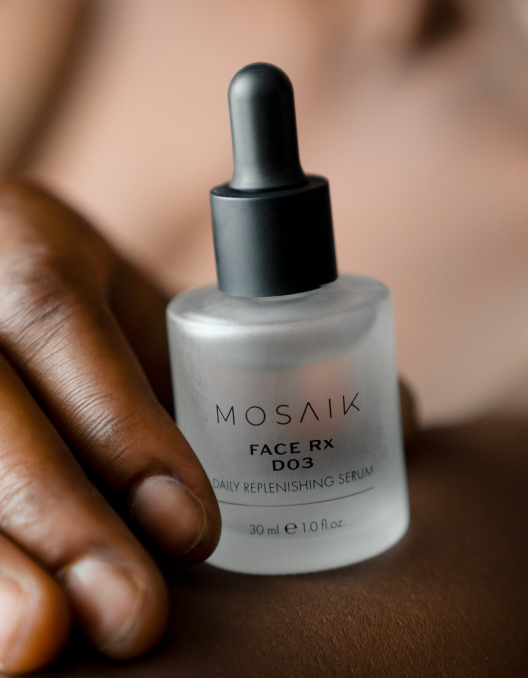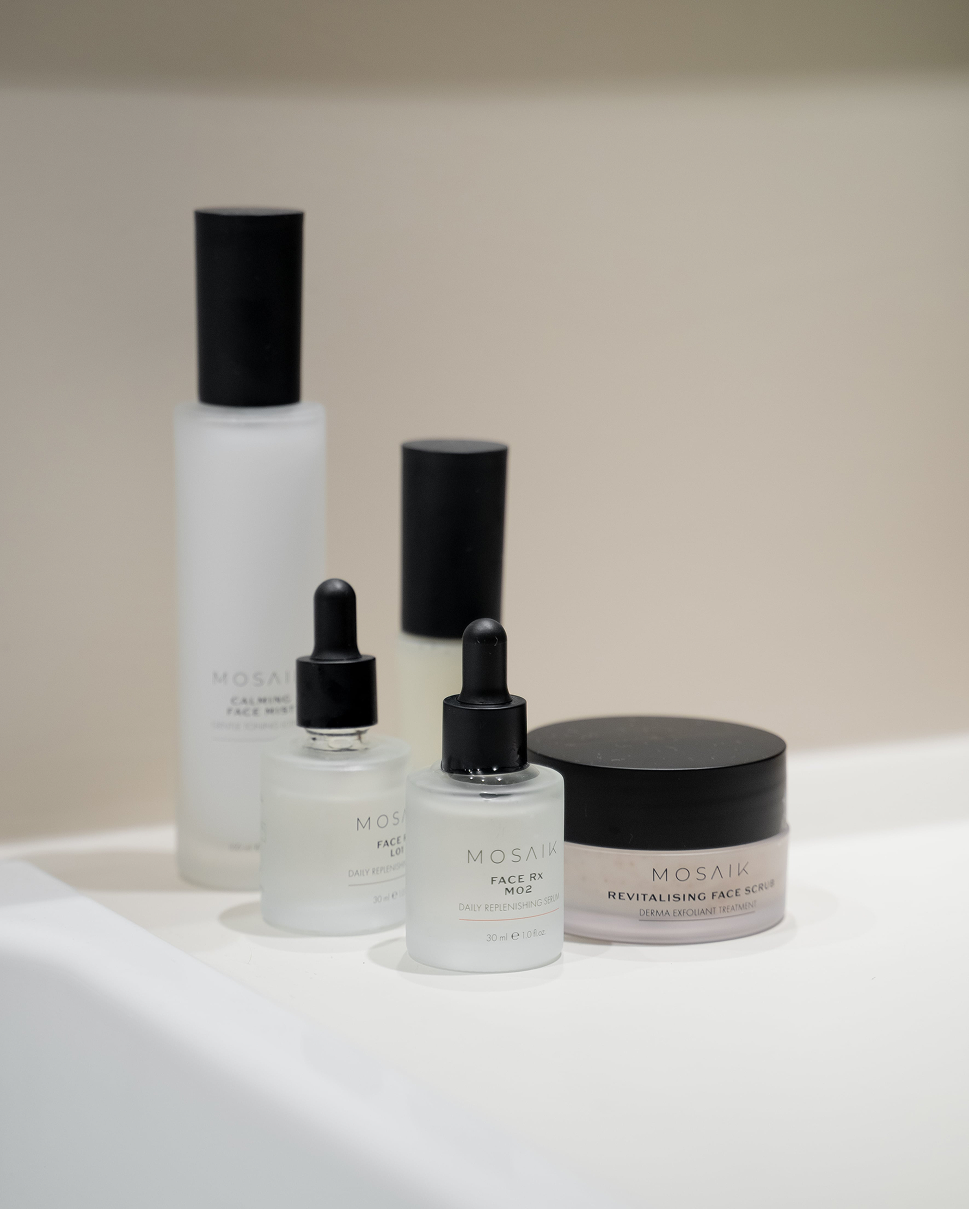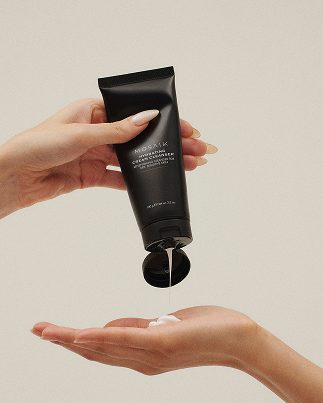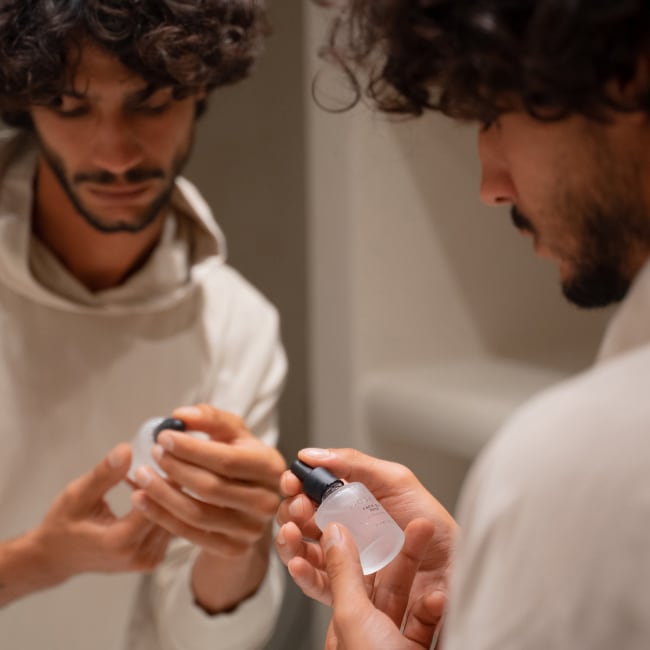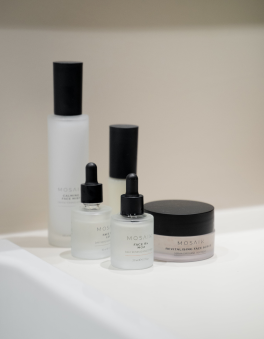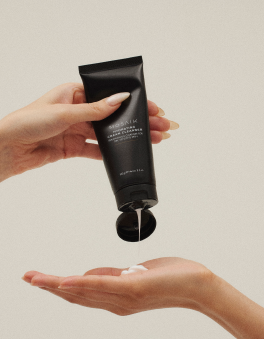The path to healthy, balanced skin isn’t just about what we put on it—it’s deeply connected to what we nurture within. The gut-skin axis is a reminder that skincare is health care, and every body and skin type deserves kindness from the inside out.
What is the Gut-Skin Axis?
The gut-skin axis refers to the dynamic, two-way connection between our digestive system and our skin. A healthy gut supports optimal nutrient absorption, reduces systemic inflammation, and strengthens the skin barrier. Whereas an imbalanced gut (dysbiosis) can lead to skin inflammation, acne, eczema, rosacea, or dullness.
Vitamins & Nutrients That Support the Gut-Skin Axis
Nutrient: Zinc
Role: Supports wound healing and reduces inflammation.
Sources: Pumpkin seeds, legumes and eggs.
Nutrient: Vitamin A
Role: Essential for skin cell turnover and gut lining repair.
Sources: Sweet potatoes and leafy greens.
Nutrient: Vitamin D
Role: Modulates gut microbiome and immune response.
Sources: Sunlight, mushrooms and fortified foods.
Nutrient: Omega-3s
Role: Anti-inflammatory—soothes gut and skin.
Sources: Flaxseeds, walnuts and oily fish.
Nutrient: Probiotics
Role: Supports healthy gut flora.
Sources: Yoghurt, kimchi, sauerkraut and kefir.
Nutrient: Prebiotics
Role: Feeds good gut bacteria.
Sources: Garlic, onions, bananas and oats.
Nutrient: Collagen and Amino Acids
Role: Promotes skin elasticity and gut lining integrity
Sources: Bone broth, fish and eggs.
Supplements Worth Considering*
-
Probiotic blends: Look for diverse strains like Lactobacillus and Bifidobacterium.
-
L-glutamine: Supports gut lining repair.
-
Zinc: Easily absorbed form for skin healing.
-
Turmeric/Curcumin: Anti-inflammatory for both gut and skin.
-
Digestive enzymes: Especially if experiencing bloating or slow digestion.
*It’s important to always consult with a healthcare provider before introducing new supplements.
Gut-Friendly Foods That Love Your Skin
Fermented Foods
Examples: Miso, natto, kimchi, sauerkraut, kefir, yoghurt (with live cultures) and tempeh.
Why They Matter: Fermented foods are rich in probiotics—live beneficial bacteria that help maintain a healthy gut microbiome. A balanced gut flora reduces systemic inflammation, improves nutrient absorption, and modulates immune responses, all of which directly influence skin conditions such as acne, eczema, and rosacea. For instance, Lactobacillus plantarum, found in kimchi and fermented soy, has been shown to reduce skin sensitivity and improve skin barrier function.
High-Fibre Foods
Examples: Oats, legumes (chickpeas, lentils), apples, chia seeds, flaxseeds, sweet potatoes and leafy greens.
Why They Matter: Dietary fibre supports the growth of beneficial gut bacteria by acting as a prebiotic—a food source for probiotics. This leads to the production of short-chain fatty acids (SCFAs) like butyrate, which have anti-inflammatory properties and help maintain the integrity of the gut lining. A healthy gut lining prevents the translocation of pro-inflammatory substances into the bloodstream, thereby protecting the skin from inflammatory flare-ups.
Polyphenol-Rich Foods
Examples: Green tea, berries (blueberries, raspberries), dark chocolate (min. 70% cacao), olives, pomegranates and red grapes.
Why They Matter: Polyphenols are potent antioxidants and prebiotics that support microbial diversity in the gut while directly neutralising oxidative stress in the body. For skin, this translates into reduced signs of ageing, less inflammation, and enhanced photoprotection. Epigallocatechin gallate (EGCG), the primary polyphenol in green tea, has been shown to improve acne by reducing sebum production and inflammation.
Anti-Inflammatory Herbs and Spices
Examples: Ginger, turmeric, fennel, cinnamon, holy basil and rosemary.
Why They Matter: These herbs contain bioactive compounds such as curcumin (in turmeric) and gingerol (in ginger), which have been shown to downregulate pro-inflammatory cytokines and modulate gut microbiota composition. Chronic low-grade inflammation, often stemming from gut dysbiosis, is a common driver of skin conditions including psoriasis and atopic dermatitis.
Hydrating Foods
Examples: Cucumber, celery, watermelon, strawberries, oranges and lettuce.
Why They Matter: Proper hydration supports mucosal integrity in the gut and optimises digestion and detoxification—factors that indirectly affect skin clarity and texture. Hydrating foods are also rich in electrolytes and vitamins such as vitamin C, which contributes to collagen synthesis and protects the skin against oxidative stress.
Lifestyle Habits That Nourish the Gut-Skin Axis
-
Practice mindful eating: Chew slowly, avoid overeating.
-
Get quality sleep: Skin regeneration and gut repair both happen overnight.
-
Lower stress levels: Stress disrupts gut flora and worsens skin flare-ups.
-
Stay active: Movement supports digestion and skin oxygenation.
-
Limit alcohol and smoking: Both disrupt gut lining and accelerate skin ageing.
-
Hydrate consistently: Water helps flush toxins and maintain skin elasticity.
Habits & Foods to Avoid (or Minimise)
Excessive Refined Sugar and Processed Foods
A diet high in refined sugars and ultra-processed foods can negatively impact the gut microbiota by promoting the growth of harmful bacteria and yeast (such as Candida albicans), while simultaneously reducing microbial diversity. This imbalance, known as dysbiosis, is linked to systemic inflammation and can manifest in the skin as acne, eczema, or dullness. These foods also spike insulin levels, which may increase sebum production and exacerbate inflammatory skin conditions.
Artificial Sweeteners
Common sugar substitutes like aspartame, saccharin, and sucralose have been shown in studies to alter gut microbial composition, potentially reducing beneficial bacterial strains such as Lactobacillus and Bifidobacterium. This disruption may impair gut barrier function and immune regulation, potentially triggering inflammatory skin responses.
Chronic Use of Antibiotics Without Microbiome Support
While antibiotics are sometimes necessary, prolonged or repeated use—especially without replenishing the gut with probiotics or fermented foods—can deplete both harmful and beneficial bacteria. This loss of microbial diversity may weaken the intestinal lining (leading to increased intestinal permeability or "leaky gut") and promote systemic inflammation that can surface in the skin as breakouts, rashes, or increased sensitivity.
Highly Inflammatory Oils e.g. Soybean Oil and Corn Oil
These refined vegetable oils are rich in omega-6 fatty acids, which in excess can contribute to a pro-inflammatory state in the body. A diet skewed heavily toward omega-6, without sufficient omega-3 intake (from sources like flaxseeds, walnuts, or oily fish), has been associated with inflammatory skin conditions, including acne and psoriasis.
Over-Exfoliation or Overuse of Harsh Skin Products
While topical skincare is important, excessive exfoliation or use of products with strong surfactants, alcohol, or synthetic fragrances can damage the skin barrier and worsen inflammation. Skin health is a reflection of internal balance, and relying solely on aggressive external treatments may undermine the natural healing process. A damaged skin barrier can also become more reactive to systemic inflammation originating from poor gut health.

